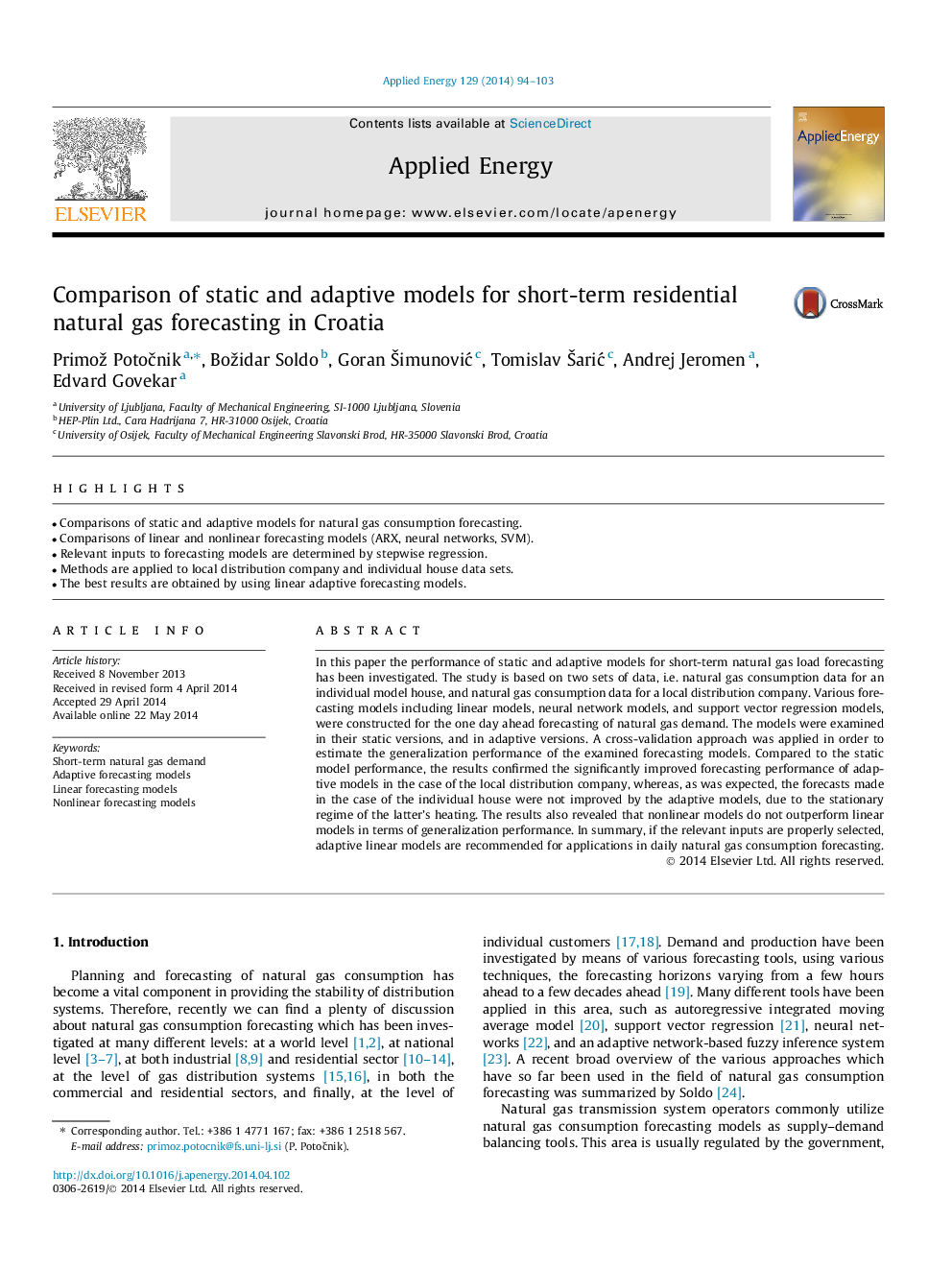| Article ID | Journal | Published Year | Pages | File Type |
|---|---|---|---|---|
| 242702 | Applied Energy | 2014 | 10 Pages |
•Comparisons of static and adaptive models for natural gas consumption forecasting.•Comparisons of linear and nonlinear forecasting models (ARX, neural networks, SVM).•Relevant inputs to forecasting models are determined by stepwise regression.•Methods are applied to local distribution company and individual house data sets.•The best results are obtained by using linear adaptive forecasting models.
In this paper the performance of static and adaptive models for short-term natural gas load forecasting has been investigated. The study is based on two sets of data, i.e. natural gas consumption data for an individual model house, and natural gas consumption data for a local distribution company. Various forecasting models including linear models, neural network models, and support vector regression models, were constructed for the one day ahead forecasting of natural gas demand. The models were examined in their static versions, and in adaptive versions. A cross-validation approach was applied in order to estimate the generalization performance of the examined forecasting models. Compared to the static model performance, the results confirmed the significantly improved forecasting performance of adaptive models in the case of the local distribution company, whereas, as was expected, the forecasts made in the case of the individual house were not improved by the adaptive models, due to the stationary regime of the latter’s heating. The results also revealed that nonlinear models do not outperform linear models in terms of generalization performance. In summary, if the relevant inputs are properly selected, adaptive linear models are recommended for applications in daily natural gas consumption forecasting.
